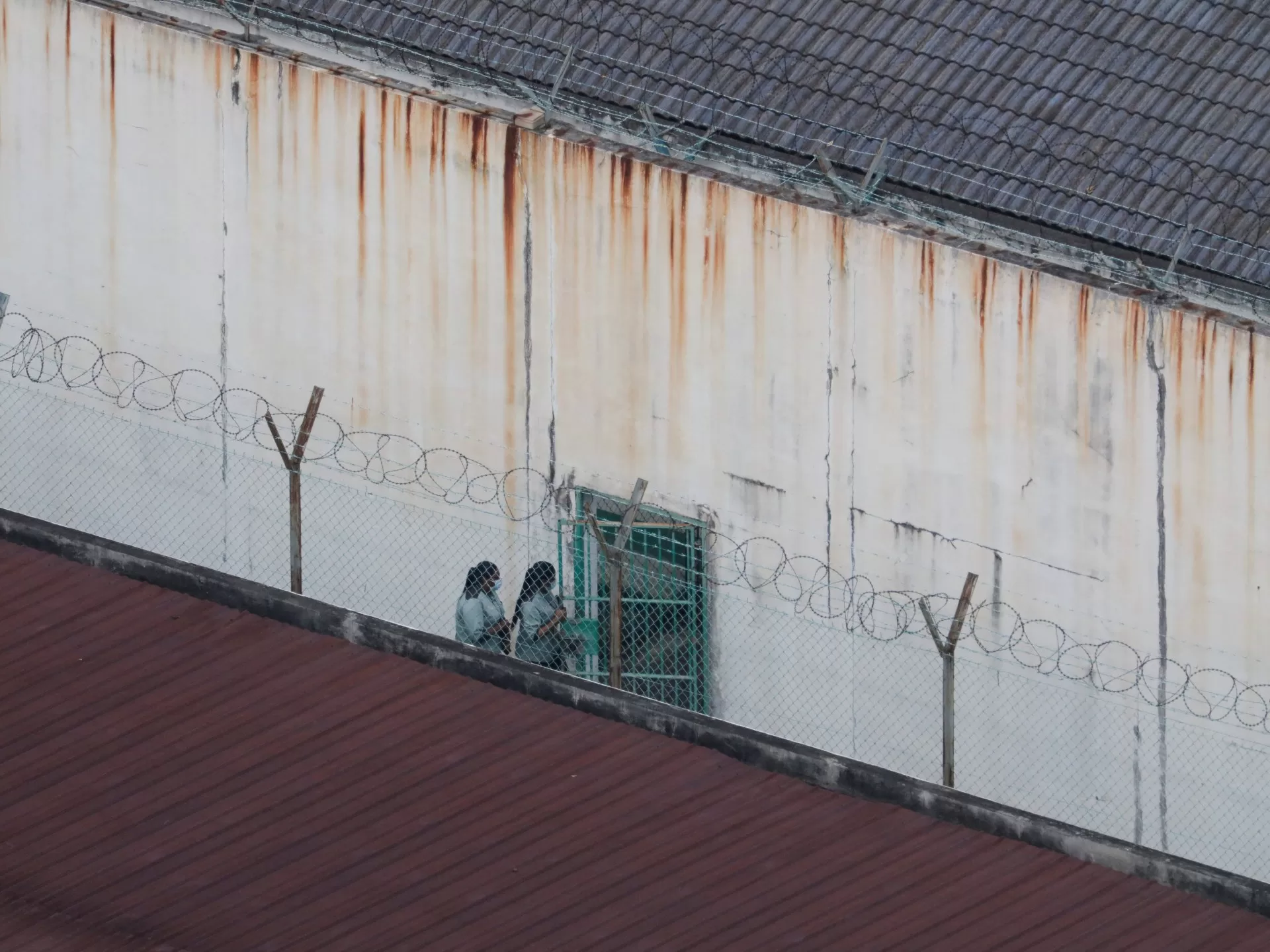In a report released on Wednesday, the rights group said 23 former detainees described the centres as “oppressive” places where they faced the daily threat of punishment. All those interviewed by HRW for its report, “We Can’t See the Sun: Malaysia’s Arbitrary Detention of Migrants and Refugees”, said they had witnessed beatings while 15 of them said they had been beaten themselves.
Punishments included being hit, kicked and beaten with rubber pipes or batons, being forced to hold stress positions or hang from the wall, isolation, having meals withheld and being ordered to perform hundreds of squats and push-ups, the report said.
Hussein, a Rohingya refugee registered with the United Nations refugee agency (UNHCR) since 2016 but still detained, told HRW that he had been held in multiple detention centres.
At Kemayan in the central state of Pahang, he said he was among some 80 people in a cell, and targeted for his ethnicity.
When “the officer realized we were Rohingya, we were kicked, beaten, and slapped,” Hussein told HRW. “Beatings happened when detainees made any mistakes. We were inside only, we couldn’t go anywhere. Couldn’t speak either.”
Hussein said guards called detainees for regular roll calls. In one centre – Belantik, in the northern state of Kedah – there were between 10 and 12 roll calls a day, each lasting for half an hour. In Kemayan, there were only three but they lasted far longer.
“Sometimes one muster call would take an hour,” he said. “That meant we had to look down and not lift our heads for the whole hour. If the officer saw anyone lifting their head, they would withhold all our food for the day. Once the muster call lasted three hours.”
Ali, who also spent time in Belantik, recalled severe punishments, even for children.
“We would get beaten when we asked for more food, took an extra mug of water to shower, or asked for a blanket for the cold,” he told the researchers.
“Once, I begged the officer to stop beating a boy who had asked for more bread. I was brought out of the cell to an area that other detainees couldn’t see. Then I was not only beaten, I was submerged in a big water tank for the whole night. I tried begging the officer to stop because I had surgery before being detained and my scar was aching. Every time I stood up from the tank, I was beaten. I was beaten by eight officers at the same time. It was like they were playing football, they just kept kicking me. That went on from around 8 p.m. to 3 a.m.”
Malaysia, like most countries in Southeast Asia, is not a signatory to the UN Convention on Refugees and has no legal framework to process and recognise those fleeing persecution, violence and unrest.
Refugees are often detained alongside undocumented migrants and the UNHCR has not been allowed to visit immigration depots since 2019 even as the number of immigration raids has increased.
Parliament was told last year that some 11,694 people, including 1,467 children, were being held in its immigration detention centres as of September 2023.
Human Rights Watch noted those held had no recourse to judicial review or mechanisms to appeal their detention.
“Malaysia’s use of prolonged, judicially unsupervised immigration detention violates international human rights law,” the report said. “Detention for immigration-related reasons is harmful when arbitrary—that is, not for the limited and necessary purpose of ascertaining a person’s identity or effectuating their lawful removal.”
Al Jazeera contacted the Home Ministry for comment on the report but it had not responded by the time of the publication.
ASEAN Parliamentarians for Human Rights (APHR) said it was “deeply concerned” about HRW’s findings, noting that many of the problems had been raised previously.
“Refugees and migrants are often the victims of human traffickers and unscrupulous smugglers,” APHR Member and Philippines MP Raoul Manuel said in a statement. “For refugees and migrants to be detained in terrible conditions after already suffering in difficult situations is unconscionable, especially by a government that has pledged and claims to champion progressive reforms.”
HRW, which also interviewed humanitarian workers, lawyers and former immigration officials, also said that crowded and unhygienic living conditions inside the detention centres were also driving the spread of infectious diseases including scabies, a skin rash caused by a microscopic mite, which it described as “rampant”.
Food was also limited, with frequent water shortages and a lack of blankets or hygiene supplies, the report said. Women were also unable to secure supplies of sanitary pads and were forced to use torn clothing instead.
